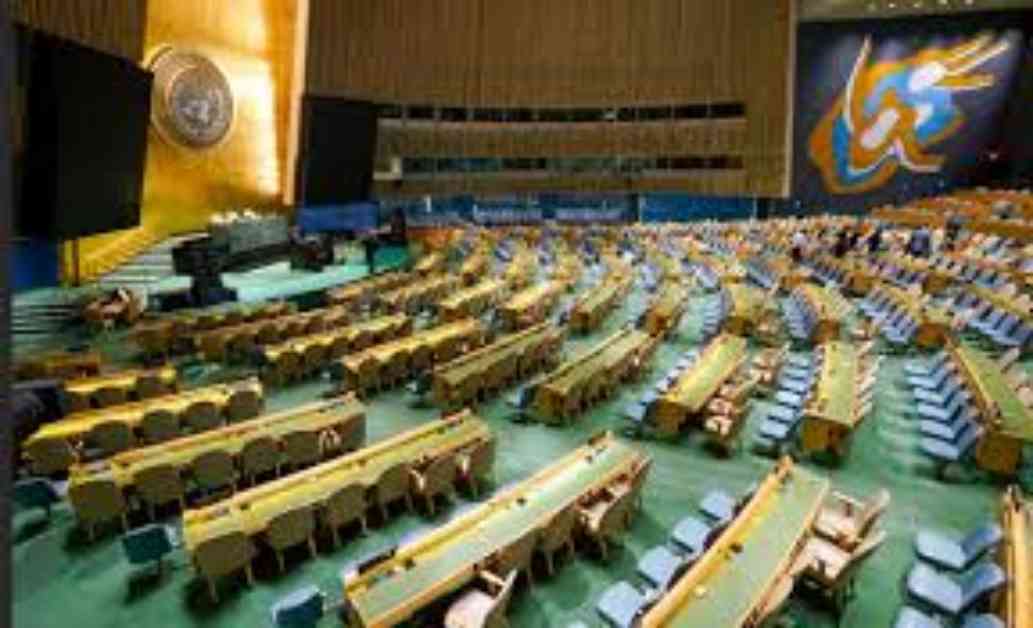International Community Urged to Stop Human Rights Violations in IIOJ&K and Gaza
Analysts are calling on the international community to take action and put an end to the ongoing human rights violations in Indian Illegally Occupied Jammu and Kashmir (IIOJ&K) and Gaza. Former Ambassador A M Shahid emphasizes the importance of Prime Minister Shehbaz Sharif’s presence at the UN General Assembly session in New York, where he will have the opportunity to address the world community and shed light on the issues of Jammu and Kashmir and the Palestinian cause. Pakistan has long been a supporter of these causes and stands in solidarity with the people of both regions.
Addressing Global Issues at the UN General Assembly
In addition to the pressing matters of Jammu and Kashmir and Gaza, the UN General Assembly session provides a platform for world leaders to engage in discussions on crucial global issues. Climate change, for instance, is a significant concern that requires collective action. Pakistan has received promises of financial assistance from world leaders to tackle this issue, highlighting the importance of reforming institutions like the World Trade Organization and the world banking system to alleviate the burden of loans on developing countries. A M Shahid stresses the need for reducing loan burdens to enable countries like Pakistan to reach their full potential.
Defense Analyst Abdullah Gul underscores the urgency of addressing peace and security issues on a global scale during the 79th session of the UNGA. The situations in Gaza and Kashmir are particularly volatile, with Gaza facing extensive destruction and humanitarian crises. Israel’s use of advanced technology in attacks on civilians raises concerns about violating humanitarian standards. Pakistan’s representation at the UNGA is crucial, given its status as the only nuclear-armed country in the Islamic world and its track record of responsible behavior. Gul calls on the UN and the international community to intervene in resolving the conflicts in Gaza and Kashmir, emphasizing the role of countries like South Africa, Colombia, and Ireland in opposing Israeli atrocities.
Urgent Call for International Intervention
The escalating human rights violations in IIOJ&K and Gaza demand immediate attention from the international community. The indiscriminate targeting of civilians and the widespread destruction of infrastructure in these regions are clear violations of human rights and international law. The use of advanced weaponry and technology in attacks further exacerbates the humanitarian crises unfolding in Gaza and Kashmir.
Abdullah Gul highlights the need for positive dialogue and intervention to prevent the conflicts from spiraling out of control. Failure to address these issues promptly could lead to the involvement of extremist groups, posing a significant threat to regional and global security. The atrocities committed by Israel and India, with support from other nations, must be condemned and addressed through diplomatic channels and legal mechanisms.
Ensuring Accountability and Justice
The international community has a moral obligation to uphold human rights and ensure accountability for violations committed in conflict zones like IIOJ&K and Gaza. The United Nations and other relevant bodies must take decisive action to investigate and prosecute those responsible for crimes against humanity. By holding perpetrators accountable and providing justice to the victims, the international community can work towards lasting peace and stability in the affected regions.
In conclusion, the situation in IIOJ&K and Gaza demands urgent intervention and decisive action from the international community. Pakistan’s representation at the UN General Assembly provides a critical opportunity to raise awareness about these pressing issues and mobilize support for ending human rights violations. It is imperative for world leaders to prioritize peace, security, and justice in their discussions and resolutions at the UNGA to prevent further escalation of conflicts and protect the rights of civilians in conflict-affected regions.

